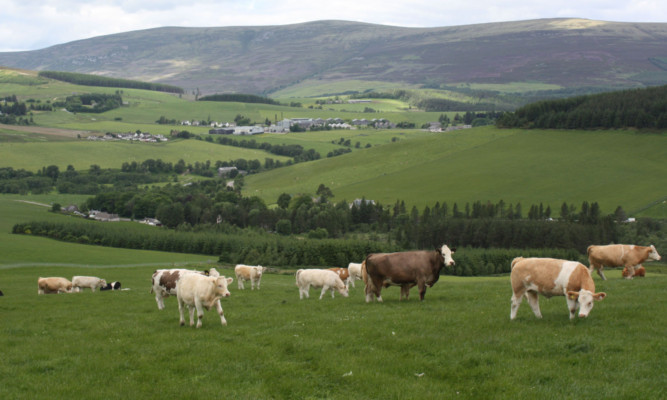Scottish farmers are facing a significant drop in this year’s Single Farm Payments (SFP) due largely to a reduction in the CAP budget, CKD Galbraith, the largest independent rural consultancy in Scotland, said.
Farmers are due to receive their 2014 payments from December 2, and the combined reduction in payments could result in around £50 million less going into the Scottish rural economy.
Gordon McConachie, agri-business adviser for CKD Galbraith, said: “Farmers are now facing a situation where payments could be considerably lower than they were expecting due to a devaluation of around 24% to their SFP entitlements for 2014.
“In one instance a value of 355.16 euros was reduced to 273.23 euros a drop of some 23.07%. Net of modulation the cash position will be around 14% less.
“This has crept up on many farmers and will come as a nasty surprise on top of cereal prices being down around 40% on the year.
“Farm businesses are facing a time of unprecedented change due to CAP reform, and it is firmly in farmers’ interests to ensure they have comprehensive information and advice.”
CKD Galbraith partner Tom Stewart added: “The figure to concentrate on is the net figure of a 14.2% reduction.
“We have checked up on several farm businesses and they have all come up with the same result.
“Perhaps because everyone has been concentrating on the new CAP which starts next year, this substantial reduction has not registered with people.”
The CKD Galbraith figures are calculated using the standard conversion rate from euros to pounds set at the end of September 2013 and this year.
There may be some variation for those who have opted to take their Single Farm Payments in euros and have forward bought sterling. They could be better or worse off, but the difference is unlikely to be huge given the relatively stable exchange rate in recent months.
However, there might be cases where producers, unaware of the 14% reduction, have over-committed and may not have sufficient euros flowing into their accounts next month to meet their obligations.
Looking forward, Mr Stewart bemoaned the lack of clarity on implementing the new CAP.
He did, however, counsel farmers to look beyond CAP reform towards some positive market signals.
“It is not all doom and gloom. November 2015 wheat futures are £20 ahead of November 2014 values, and if malting barley contracts can be agreed at a £20 premium over wheat futures than that puts prices in the over-£160 per tonne range.
“There is always much talk of diversification, but the best course of action is often to just improve efficiency.
“Buying a better bull and improving liveweight gain in his calves would help greatly, as would producing more prime lambs to the correct market specification.
“There is massive scope for the sort of improvements that will offset lower SFP.”
